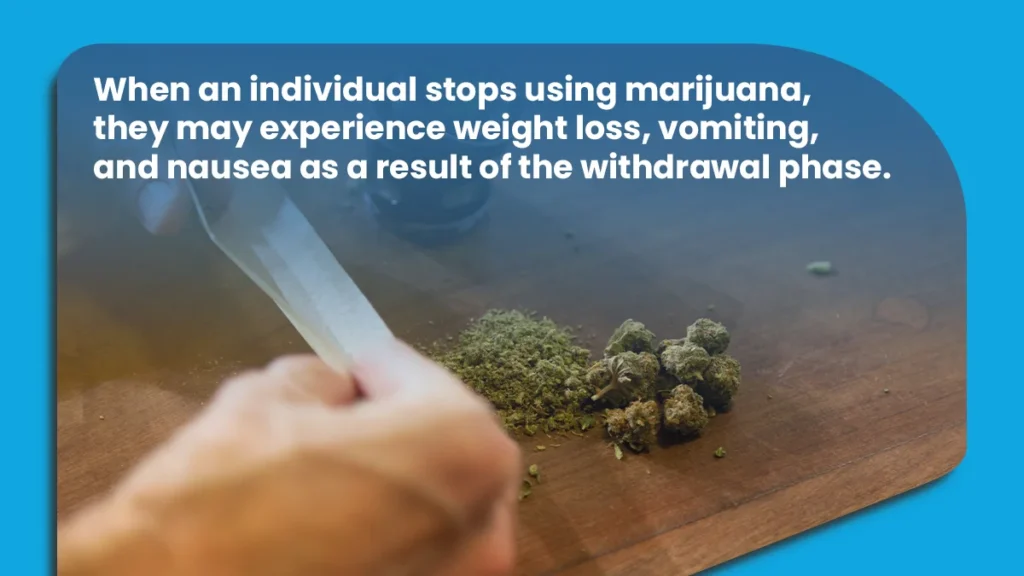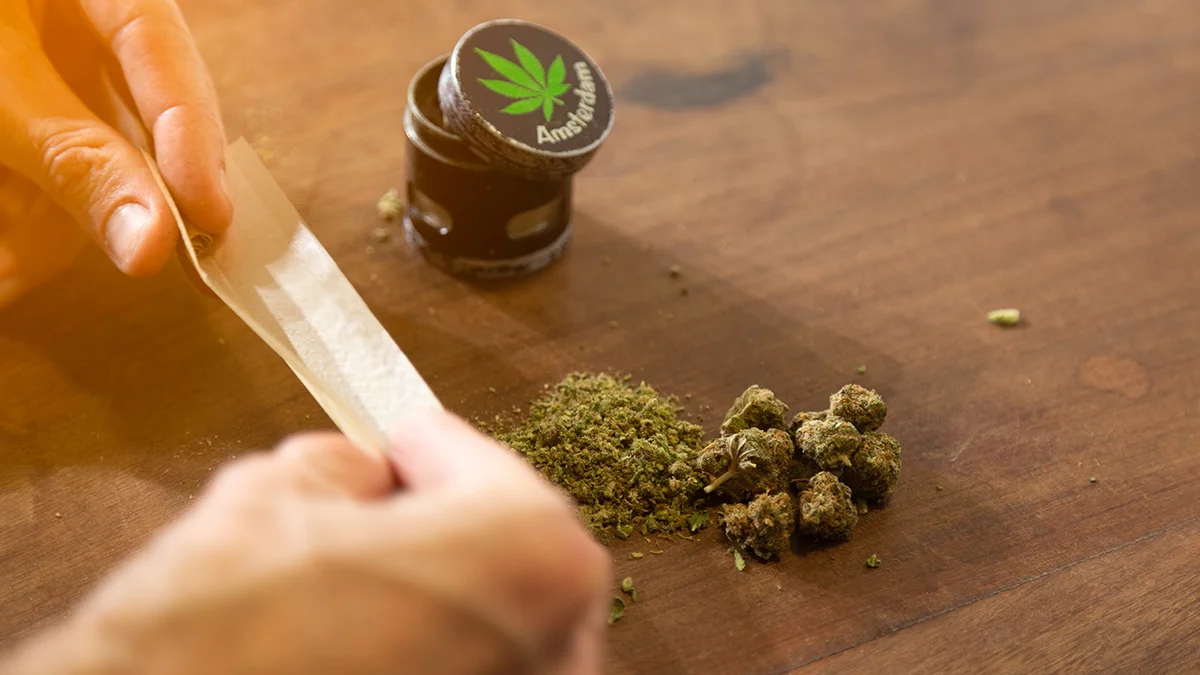Marijuana, also known as cannabis and weed, is famous for its mind-altering effect on people. Frequent use may lead to dependence, affecting cognitive functions, motivation, and emotional well-being. For some people, quitting marijuana can be challenging because of withdrawal symptoms such as irritability, insomnia, and anxiety.
A marijuana detox can help ease these symptoms by providing a structured approach to clear the body of the substance. Detox helps in overcoming dependency and restoring mental clarity and well-being. It sets the foundation for long-term recovery. Continue reading to find out about marijuana detox and how it can help your body get rid of drug toxins to attain stable health.
Key Takeaways
It is important for the body to undergo a structured detoxification process in order to eliminate marijuana. Here’s what you need to know:
- A person experiences mild to intense withdrawal symptoms during weed/marijuana detox as their body adjusts to the lack of drugs.
- Various detox methods are available, including medical approaches and home-based strategies tailored to individual needs.
- Effective detox combines therapy and other coping strategies to achieve the best results.
The Haven Detox-New England offers medical detox that comforts patients as their bodies heal. Call us today at (844) 933-4145 for more information.

A Closer Look Into Marijuana Detox
Marijuana detox is the process of clearing THC from the body. THC is the active ingredient in weed. When someone stops marijuana use, THC and its metabolites gradually leave the system. This process can take days or even weeks, depending on the frequency and amount of marijuana use. During marijuana detox, individuals may experience marijuana withdrawal, which includes symptoms like trouble sleeping and indigestion problems.
Detox is essential for individuals with marijuana use disorder, as it helps the body adjust to functioning without the drug. It’s important to note that detox alone isn’t a cure for addiction but is a crucial first step in the treatment process.
Marijuana detox is about helping the body cleanse itself of THC, setting the stage for long-term recovery. Support from healthcare professionals and a focus on overall mental health can make the process smoother and more effective.
Need For Marijuana Detox For Effective Healing
The necessity of marijuana detox depends on a variety of factors, which are discussed in the following section.
History of Substance Use
Understanding the need for a marijuana detox starts with considering an individual’s substance use history. Frequent use of weed, especially regularly, can lead to marijuana use disorder. The potency of the marijuana and the frequency of use determine how deeply the body is affected. Over time, THC metabolites build up in the system, making the detox process necessary to rid the body of these substances.
Physical Dependence
Physical dependence on marijuana occurs when the body becomes used to the presence of drugs. As the body adjusts to regular use, it starts relying on the drug to function normally.
When an individual stops using marijuana, they may experience weight loss, vomiting, and nausea as a result of the withdrawal phase. These symptoms are a result of the body’s attempt to recalibrate without weed, highlighting the importance of a thorough detox process.
Psychological Dependence
Psychological dependence is another significant aspect of marijuana use. Individuals with severe forms of marijuana addiction may find it challenging to stop using despite knowing its adverse effects. Individuals experience cravings when the drug is not available and may have suicidal thoughts and hopelessness. Co-occurring disorders can complicate the situation, requiring a tailored approach to treatment.
Warning Signs Of Marijuana Withdrawal
When undergoing a weed detox, individuals may experience various symptoms of marijuana withdrawal as their body adjusts to the absence of drugs. These symptoms can be both physical and psychological, affecting overall well-being and daily functioning.
Physical Symptoms
Physical symptoms of marijuana withdrawal can be quite challenging. As the body works to clear itself of toxins, individuals may experience:
- Headaches: These can be persistent and uncomfortable, often due to changes in brain chemistry.
- Sweating and Chills: Fluctuations in body temperature are common, causing episodes of sweating or chills.
- Appetite Changes: While some may experience appetite loss, others might have increased hunger. These changes are part of the body’s adjustment to the lack of THC.
Psychological Symptoms
The psychological side effects of marijuana withdrawal can also be significant. These symptoms may include:
- Lack of Sleep: Difficulty falling or staying asleep is a common sign that the body is adjusting to the absence of drugs.
- Irritability: Mood swings and increased irritability can affect relationships and daily activities.
- Depression: Some individuals may feel down or experience depressive moods during withdrawal, making the process even more challenging.
These symptoms of withdrawal highlight the importance of a well-supported detox process. Whether through natural methods or medical assistance, addressing both physical and psychological side effects can improve the chances of a successful recovery from substance abuse.
Effective Marijuana Detox Methods
There are several marijuana detox methods available that can be tailored to individual needs. The available options include natural detox, medical detox, and home-based detox. It is best to consult a medical professional to determine which method suits you.
Natural Detox
The natural detox methods involve the gradual elimination of THC from the system. The most common approaches include the cold turkey approach and gradual tapering. Cold turkey means to stop using marijuana at once.
This method has been effective in achieving sobriety. Gradual reduction, on the other hand, means reducing the use of marijuana slowly to make the change easier with minimal discomfort during withdrawal. Those who want to complement their detox process naturally must stick to a good diet with plenty of fluid intake, which may include drinks like cranberry juice, thus facilitating the elimination of toxins by the body.
Medical Detox
A medical detox program may be most necessary for those with more severe stages of cannabis use disorder or who are considered to be at a higher risk for developing severe withdrawal symptoms. This most often consists of inpatient and outpatient programs at medical facilities.
Inpatient programs, also known as residential treatment, are extremely useful for individuals who require extreme and extensive care due to the 24/7 supervision and support provided.
Outpatient detox allows individuals to be treated without being admitted and, therefore, can continue their daily life. Medical professionals help to ensure that detox is safely conducted and covers both physical and psychological withdrawal features effectively.
Home-Based Detox
Home-based detox can help people overcome addiction with mild dependence on marijuana. This type of detox at home includes exercise and a healthy diet. Aerobic exercises coupled with a balanced diet will keep the body healthy and promote excretion, which will help the body overcome the withdrawal effects of cannabis. A good detox diet, including plenty of water and nutritious food, will keep the person’s general health in shape and promote detoxification.
Timeline Of Marijuana Detox
The marijuana withdrawal timeline can be divided into three key phases, each with its timeframe and characteristics. Initial withdrawal marks the beginning of the detox process. During these first few days, individuals may start to experience early signs of cannabis withdrawal, such as changes in mood. This stage is crucial for setting the foundation for further detoxification.
Then comes the acute withdrawal phase, which is the period when withdrawal symptoms typically peak. This phase often involves more noticeable changes as the body craves THC metabolites. In severe cases, a person may experience seizures and require immediate help. This stage usually lasts about two weeks and is essential for managing the immediate effects of quitting marijuana.
Post-acute withdrawal syndrome (PAWS) can follow the acute phase, lasting several weeks to months. This period involves gradually reducing symptoms and continues the body’s adjustment.
PAWS is characterized by lingering effects that can persist for a long time, depending on the individual’s level of dependence and the time frame of their marijuana use. Overall, the marijuana detox timeline is a gradual process, with each stage playing a role in helping the body and mind recover from the effects of addictive substances.
Key To Effective Marijuana Detox
Effective marijuana detox includes several strategies combined with support systems. Becoming part of therapy programs, such as cognitive behavioral therapy, can help develop coping strategies. CBT deals with problems that are deeply connected to substance use and replacing negative coping styles or methods with healthier ones.
Support groups such as Marijuana Anonymous are also significant to recovery. They provide a safe space to interact with peers with similar experiences who encourage and offer practical advice. Family members also provide emotional support and reassurance, which helps the patient through the process. Their participation enhances the support network and provides a sense of accountability.
Moreover, close cooperation with the medical team will provide the best treatment options and recommendations. The inclusion of these strategies in your detox plan will remarkably improve your possibility of success and recovery from addictive substances.
Frequently Asked Questions (FAQ)
How long does it take to detox from marijuana?
Detoxing from marijuana typically takes a few weeks to several months. It depends on factors like the frequency of use and individual health. Initially, individuals may experience withdrawal symptoms such as poor sleep quality and anxious thoughts within the first few days. The acute phase, with more intense symptoms, usually lasts about two weeks.
After this, some people may continue to experience mild symptoms for several weeks, known as post-acute withdrawal syndrome (PAWS). Overall, during this period, the body detoxifies from marijuana and stabilizes without dependence.
What are the common symptoms of marijuana withdrawal?
Common symptoms of marijuana withdrawal can include a variety of physical and emotional effects. Individuals might experience cravings for marijuana, which can be quite intense. Restlessness and difficulty relaxing are also common. Many people suffer from anorexia and subsequent weight loss due to reduced appetite.
Disturbed sleep is frequent, often with vivid dreams or nightmares. The gastrointestinal tract may be affected, leading to abdominal pain or other digestive issues. Night sweats can disrupt rest, and tremors or shaking, particularly in the hands, are common. Additional symptoms might include irritability, depression, fatigue, and difficulty concentrating.
When should I seek professional help for marijuana detox?
You should seek professional help for marijuana detox if you have a history of prolonged marijuana use and want to quit. If you are doing home detox and your symptoms are intense or you struggle to manage them on your own, getting the help of medical professionals is crucial.
It is always recommended to explore inpatient programs or a medical facility for a structured approach to detox. Professional assistance is essential if your use of marijuana has led to significant physical or psychological issues. Several factors, including the severity of withdrawal and personal health, can influence the need for professional support.
Embrace A Drug-Free Future With The Haven Detox-New England
Marijuana detox is an important step to attain recovery from substance abuse. If you or someone you know is dealing with addiction, then The Haven Detox-New England is here to help you break free from the cycle.
We provide detox with customized treatment plans to help you cope with withdrawal symptoms. If you or a loved one is dealing with marijuana addiction, you can become part of our residential treatment program, where we provide 24/7 access to a safe and comfortable environment with trained medical professionals for assistance.
Addiction, alongside other mental illnesses, can complicate the recovery process, which is why we provide dual-diagnosis treatment to address both conditions simultaneously.
Take the first step in beating addiction. Call us at (844) 933-4145 today for more information.
Verify Insurance
Let’s get you or a loved one help with a few simple steps.




